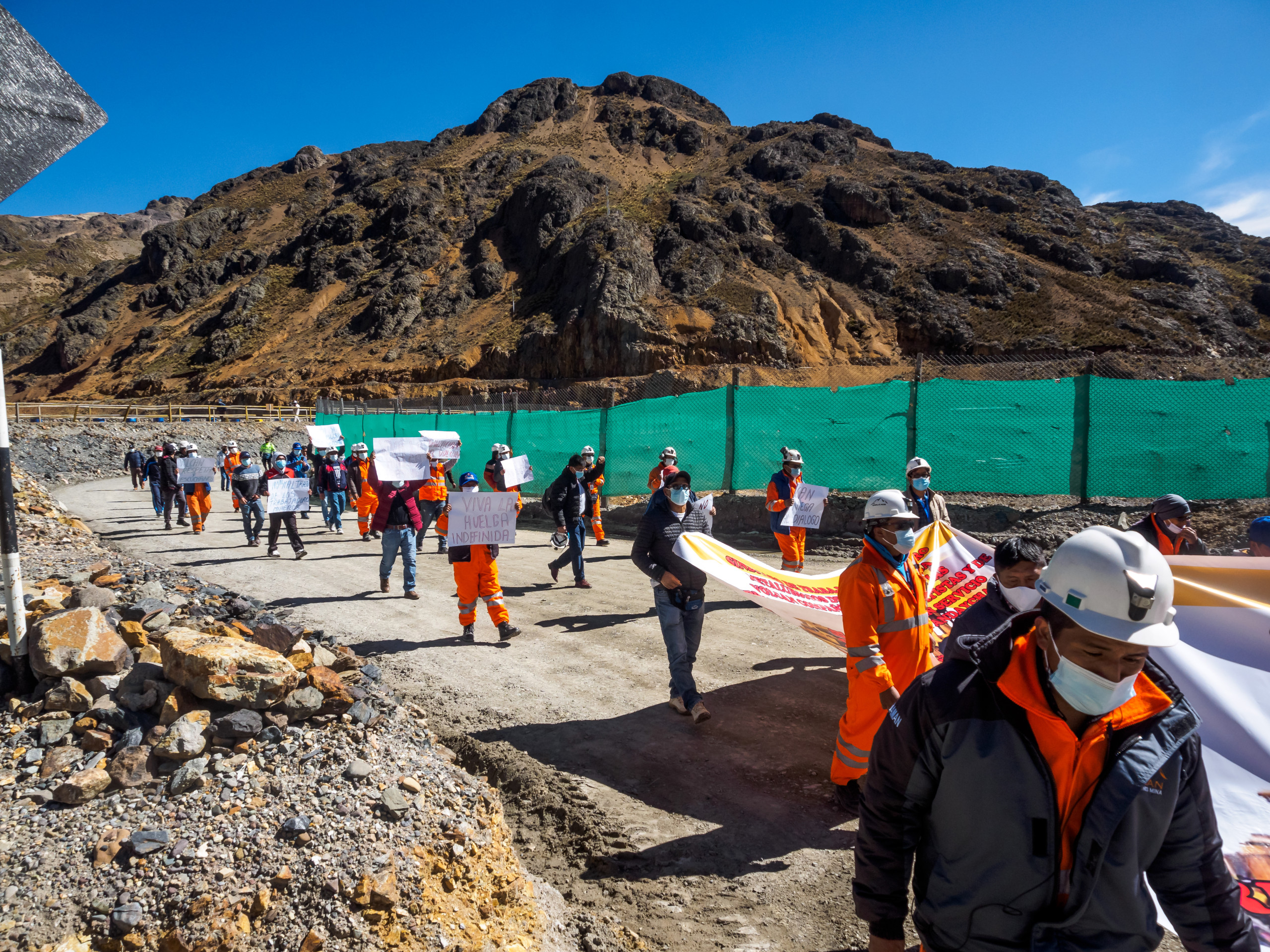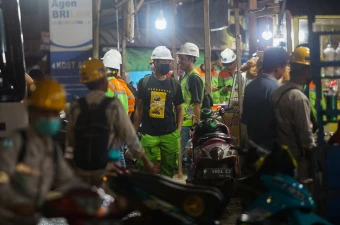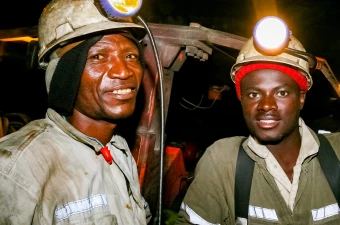A complaint has been submitted to protect and defend miners’ rights in Peru and Colombia
For the first time ever, trade union organisations, together with CNV Internationaal, are filing a complaint with the EU in a quest to make precarious working conditions in the mines in Colombia and Peru visible. These are the mines producing the coal and metals that play such a crucial role in the European Union’s energy supply.
“Our aim is to have the European Union work with both countries to achieve compliance with the sustainability Chapter of the Trade Agreement," explains Maurice van Beers, Latin America coordinator of CNV Internationaal, who will be presenting the complaint.
On May 17, 2022, Maurice van Beers and Ana Catalina Herrera, CNV Internationaal's representative in Colombia, have presented a complaint on behalf of the mining unions Sintracarbón, Sintracerrejón from Colombia, and Sindicato de Trabajadores Mineros Metalúrgicos de Andaychagua Volcan Compañía Minera from Peru before the Single Entry Point (SEP) of the European Commission.
This complaints system was only established last year and enables workers to report violations of the sustainability agreement, including labour rights violations.

Subcontracting
One of the key issues in this complaint is the obvious breach in both countries regarding the labour conditions of subcontracted workers compared to those hired directly by mining companies.
The difference is significant, both in terms of job stability and wages. A study commissioned by the Friedrich Ebert Foundation (FES) on coal mining in Colombia reveals that outsourced workers work under short-term contracts ranging from 3 to 6 months to 1 year, without any social benefits. They work longer hours and earn 30% less.
The objective of the mining unions’ complaint is to make the violations and anti-union practices in Colombia and Peru more visible. These practices are a direct breach of the sustainability chapters in the international trade agreements signed between both countries and the Member States of the European Union.
Social sustainability in EU Trade Agreements
This complaint highlights the fact that the governments of Colombia and Peru have not been fulfilling key social sustainability provisions of the trade agreement that both countries have with the European Union. These violations are occurring in the context of a crucial energy transition where coal now plays an important role and metals are being positioned as the primary source of energy sustainability for the future. The current situation makes it especially urgent for international rights guarantor entities to address these inconsistencies.
63% feel hostility regarding union membership
Furthermore, the complaint reveals a pattern of anti-union acts and the misuse of subcontracting, issues which are violations of workers' rights to freedom of association and collective bargaining. This is therefore direct discrimination against subcontracted workers who perform the same work as direct employees.

Precarious working conditions
These precarious working conditions and anti-union practices have been occurring for several years in both countries in the mines owned by Glencore (the Swiss multinational). In Colombia, the Glencore mines export coal, and in Peru they export zinc, copper, tin, silver, and lead directly to the EU Member States.
Freedom
Another crucial aspect in this dispute over labour rights has to do with the limitations subcontracted workers face when it comes to the right of association and collective bargaining.
According to a survey in Peru, 46.3% of respondents indicate that their contracts will not be renewed in cases of union participation and that their contracts contain conditions prohibiting them from joining a union.In addition, 63% feel hostility regarding union membership and 49.6% indicate that they are not covered by a collective bargaining agreement.
Both Colombia and Peru have legally approved mechanisms in place which, in theory, protect and guarantee the rights of subcontracted workers. Unfortunately, these laws have not been put into practice due to, since the real problem is the a lack of application and sanctioning of non-compliance with these laws.
Sustainability
CNV Internationaal is filing this complaint for several reasons. For one, they want to show breaches in the international agreements, specifically in regard to issues of sustainability covered in Chapter IX of the Trade Agreement between Colombia and Peru and the European Union. In addition, they aim to help mitigate these breaches by introducing a Road Map that tracks the impact of labour subcontracting and precarious contracts in the two countries. The complaint addresses the responsibilities (including mandatory human rights due diligence) of all business actors involved in the use of subcontracted workers.
A fair energy transition
During the process of this global energy transition, it is essential for European countries importing minerals which have been extracted from Latin American mines to demand compliance with the laws that protect the rights of workers. This is the only way for this transition to be fair and just.
LABOUR OBSERVATORY
Together with mining unions from Colombia, CNV Internationaal has initiated in 2021 a labour observatory that specialises in monitoring, sharing, and promoting fair energy transition issues. By continually sharing useful information like tools, cases, videos, stories, and news, we’re supporting and promoting social dialogue processes in Latin America.
Learn more on the special website >>
Publication date 16 05 2022


